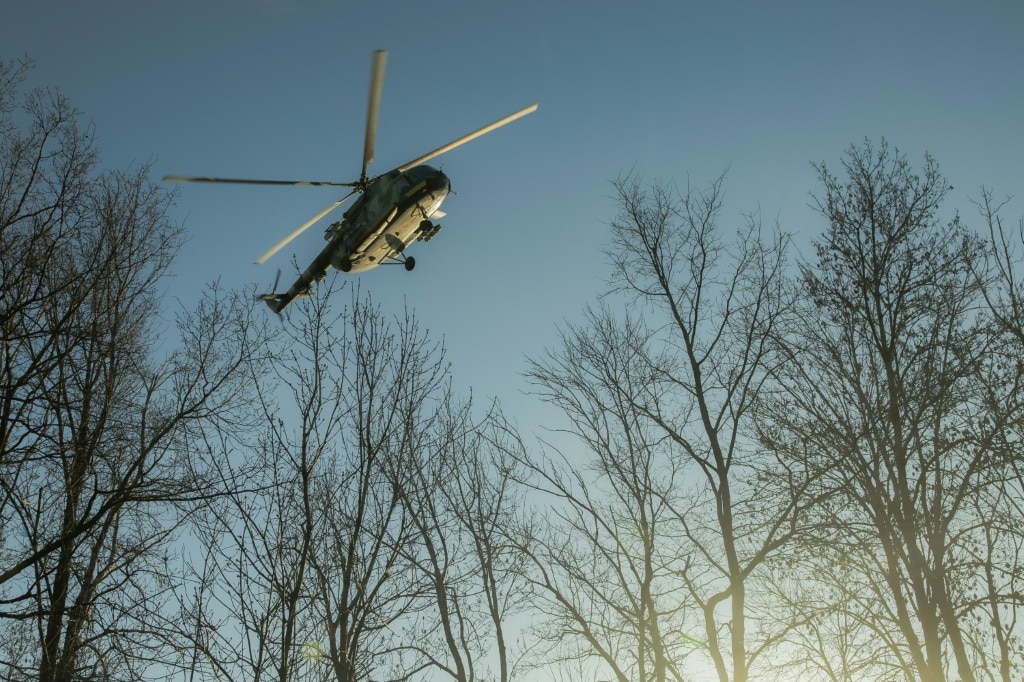Russia agrees to prisoner of war swap in peace talks after Ukraine’s surprise drone attack
The day after Ukraine launched an extraordinary covert attack destroying $11 billion worth of Russian war planes, the Kremlin fronted peace talks with a surprising outcome.
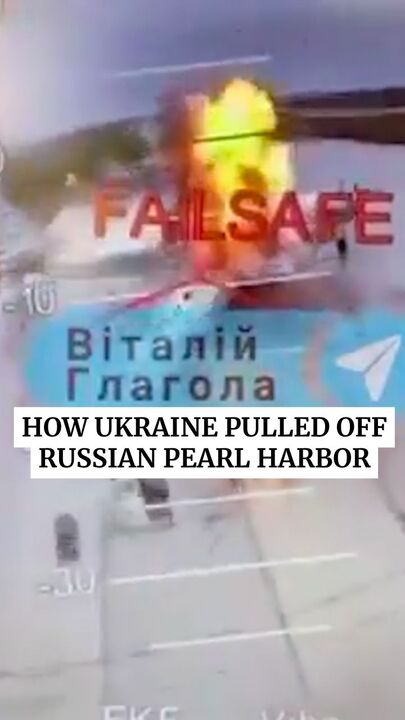
Russia and Ukraine are working on a fresh prisoner exchange following talks between delegations from Kyiv and Moscow in Istanbul, President Volodymyr Zelensky said on Monday.
The delegations “exchanged documents through the Turkish side, and we are preparing a new release of prisoners of the war,” Mr Zelensky said during a summit that included NATO leaders in Lithuania.
However, Russia rejected an unconditional ceasefire with Ukraine at the meeting Kyiv negotiator Sergiy Kyslytsya said.
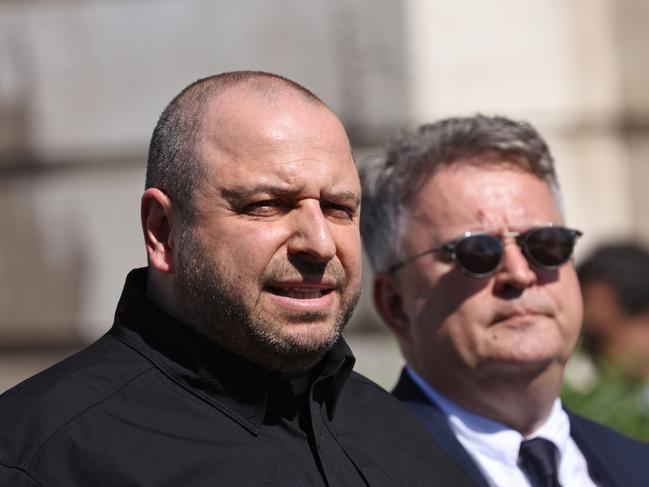
“The Russian side continued to reject the motion of an unconditional ceasefire,” Mr Kyslytsya told reporters in a press conference after the talks.
Ukrainian President Volodymyr Zelensky said any deal must not “reward” Russian leader Vladimir Putin, but said Kyiv was willing to take the “necessary steps for peace”.
Urged on by US President Donald Trump, Moscow and Kyiv have opened direct negotiations for the first time since the early weeks of Russia’s invasion, but have yet to make progress towards an agreement.
Monday’s talks come a day after Ukraine carried out one of its most brazen and successful attacks ever on Russian soil – using drones to hit dozens of strategic bombers parked at air bases thousands of kilometres behind the front line.
A first round of meetings in Istanbul last month yielded a large-scale prisoner exchange but no pause in the fighting.
“The key to lasting peace is clear, the aggressor must not receive any reward for war. Putin must get nothing that would justify his aggression,” Mr Zelensky added.
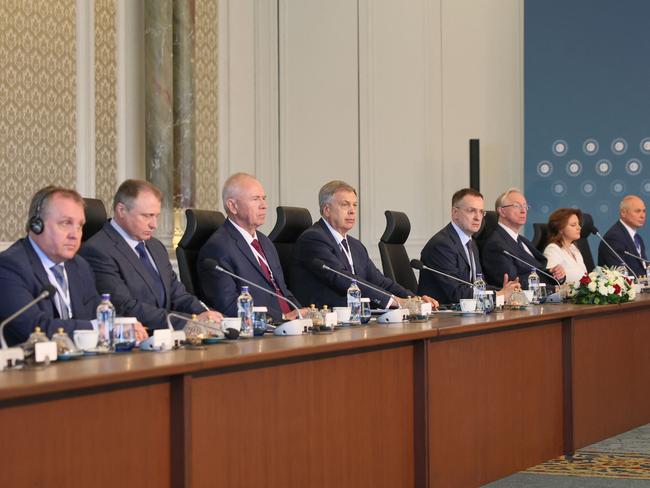
Ukraine wants a “full and unconditional ceasefire” to allow space to then discuss a long-term settlement. Russia has repeatedly rejected those calls.
Moscow says it wants to address the “root causes” of the conflict – language typically used to refer to a mix of sweeping demands including limiting Ukraine’s military, banning the country from joining NATO and massive territorial concessions.
Kyiv and the West say those concerns are baseless and that Russia’s assault is nothing but an imperialist land grab.
Ukrainian negotiators handed Russian officials a list of children “illegally deported” by Moscow during its invasion, demanding their return, Ukrainian presidential aide Andriy Yermak said.
“During talks in Istanbul, the Ukrainian side officially gave the Russian side a list of Ukrainian children that need to be returned,” Mr Yermak wrote on social media.
“We are talking about hundreds of children that Russia has illegally deported, forcibly transferred or kept in temporarily occupied territories.”
FOLLOW UPDATES BELOW:
UKRAINE’S INCREDIBLE ‘PEARL HARBOUR’ VICTORY
Ukraine destroyed $11 billion worth of Russian warplanes in a massive surprise drone attack on enemy soil hailed as “the Russian Pearl Harbour”.
The audacious operation, codenamed Spider’s Web, took 18 months of planning and deployed 117 first person view (FPV) drones which can cost as little as a few hundred dollars.
A source in the Ukrainian security services (SBU) said 41 nuclear-capable long-range bombers were launched at five air bases housing weaponry earmarked to “bomb Ukrainian villages”. Aircraft hit in the attack included the Tu-95 and Tu-22 strategic bombers and the A-50 radar detection and command aircraft.
The drones had been smuggled into Russia hidden in wooden structures installed on trucks, the SBU source revealed.
The structures’ roofs were then opened remotely to let the drones fly toward their targets.
Photos shared by the SBU show numerous small black drones hidden in what appears to be transport containers.
Of the five bases targeted, only two were hit – Olenya and Belaya – which are around 1900km and 4300km from Ukraine. The first is located in the Russian Arctic, the other in eastern Siberia.

Unverified video footage showed aircraft on a tarmac engulfed in flames and black smoke.
Ukraine’s President Volodymyr Zelensky hailed the operation’s “brilliant” results in what he called “our most long-range operation” in more than three years of war.
“A total of 117 drones were used in the operation. And a corresponding number of drone operators worked,” Mr Zelensky said in a statement, adding that “34 per cent of the strategic cruise missile carriers at the airfields were hit”.
Mr Zelensky said one of the targeted locations was right next to one of the offices of the Russian security services (FSB).
He also said agents involved in preparing the drone strikes had been “withdrawn” from Russian territory in time, after Russia’s defence ministry said several “participants” had been arrested.
Russia’s defence ministry confirmed on Telegram that several of its military aircraft “caught fire”, adding that there were no casualties.
It confirmed that the drones were not launched from Ukrainian territory but “in the immediate vicinity of the air bases”.
The Russian ministry said it successfully countered the three other attacks in the regions of Ivanovo and Ryazan as well as in Amur, near the border with China in the Russian Far East.
Russian military bloggers called the Ukraine attack a “black day for aviation”.
Rybar, an account on the Telegram messaging platform that is close to the Russian military, called it a “very heavy blow” and pointed to what it called “serious errors” by Russian intelligence.
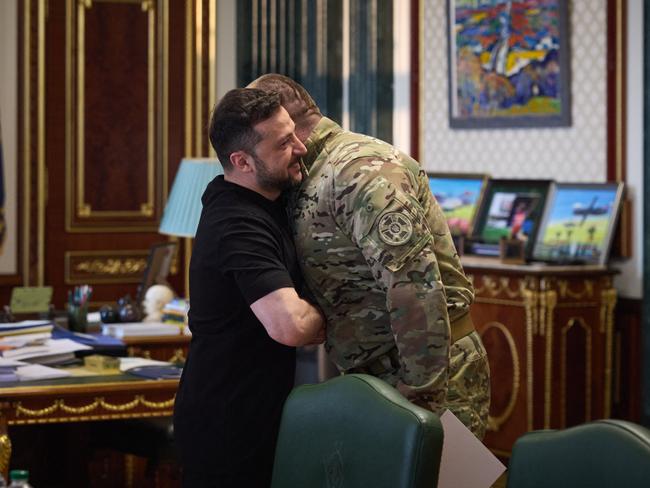
Pro-Moscow military bloggers dubbed the strike “the Russian Pearl Harbor” — in reference to the Japanese attack against the US in 1941 that prompted Washington to enter WWII.
Moscow is expected to retaliate, with speculation already appearing online about whether President Vladimir Putin will again threaten the use of nuclear weapons.
“We hope that the response will be the same as the US response to the attack on their Pearl Harbor or even harsher,” military blogger Roman Alekhin wrote on his Telegram channel.
The long-planned operation has drawn similarities to Israel’s pager attack on Hezbollah in September of 2024, nicknamed Operation Grim Beeper. That operation saw thousands of handheld pagers and hundreds of walkie-talkies intended for use by Hezbollah exploded simultaneously in two separate events across Lebanon and Syria, leaving dozens dead and hundreds injured.
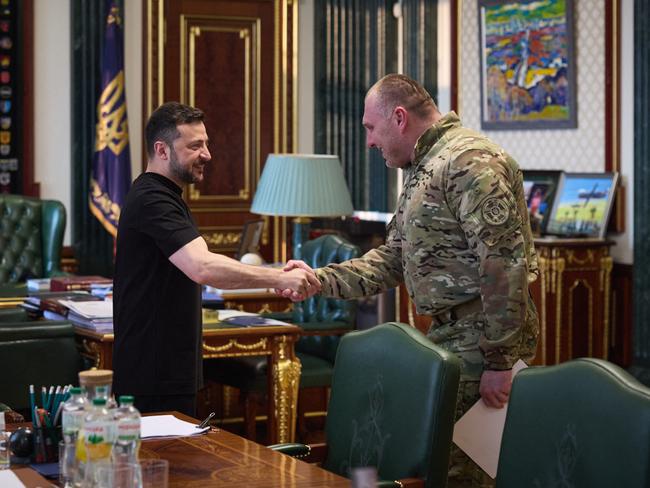
According to the New York Post, Ukraine did not give the Trump administration advance notice of the operation.
It comes at a delicate time as Ukraine and Russian delegates prepare to meet for peace talks in Istanbul on Monday, local time.
Turkey is hosting the meeting, which was spurred by President Donald Trump’s push for a quick deal to end the three-year war.
Mr Zelensky said priorities included “a complete and unconditional ceasefire” and the return of prisoners and abducted children.
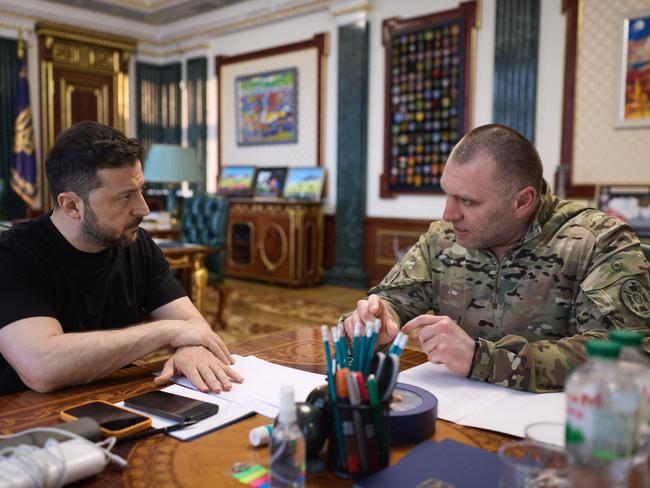
Russia, which has rejected previous ceasefire requests, said it had formulated its own peace terms but refused to make them public in advance.
Russian Foreign Minister Sergei Lavrov and his US counterpart Marco Rubio spoke about “several initiatives aimed at a political solution to the Ukraine crisis”, including Monday’s talks, the Russian foreign ministry said in a statement carried by the TASS news agency.
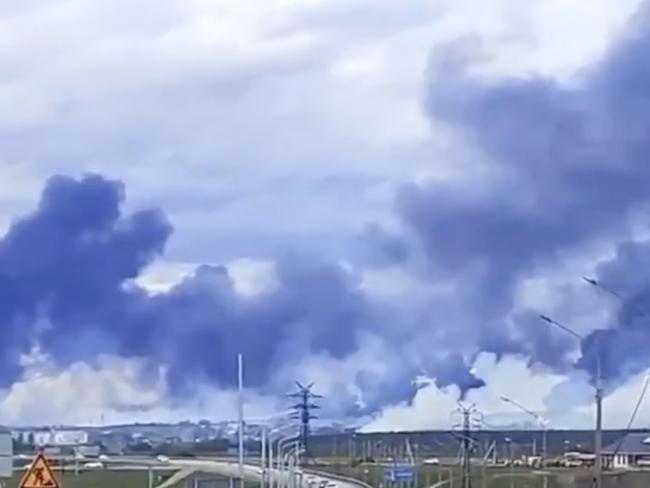
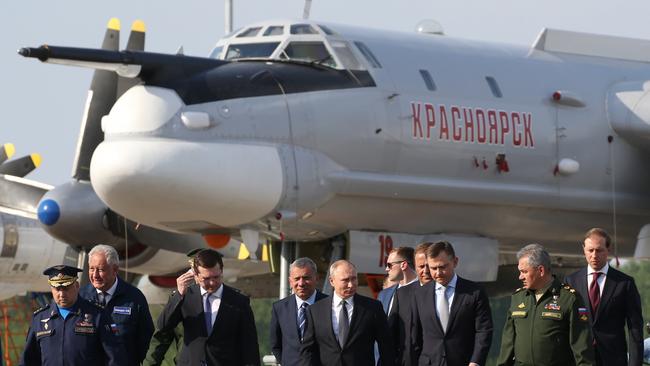
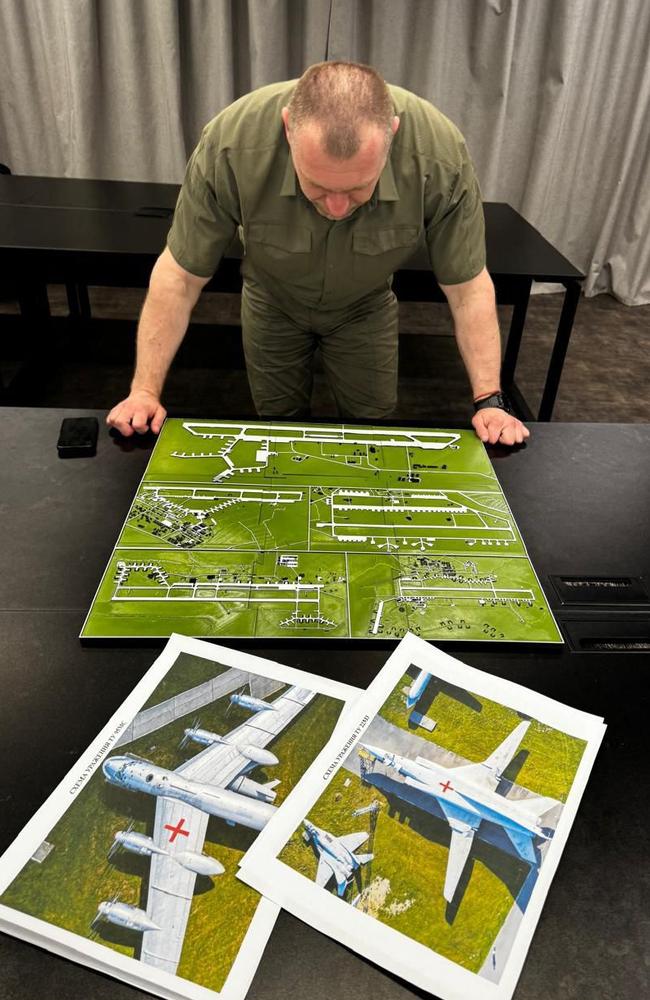
At the same time, Russia has been carrying out constant attacks on Ukraine.
On Sunday, the Ukrainian army – in a rare admission of its military losses – said Russia “launched a missile strike on the location of one of the training units” and killed a dozen soldiers, most of whom had been in shelters during the attack.
More than 60 people were wounded and at least 12 were killed.
Separately on Sunday, the Russian army said it had captured another village in Ukraine’s northern Sumy region, where Kyiv fears Moscow could mount a fresh ground assault.
Russia claims to have captured several settlements in the region in recent weeks, and has amassed more than 50,000 soldiers on the other side of the border, according to Mr Zelensky.
RUSSIA-US NEGOTIATE NEW TALKS
Russian Foreign Minister Sergei Lavrov and his US counterpart Marco Rubio spoke by telephone Sunday and discussed a new round of peace talks with Ukraine, Russian state media said.
The two diplomats “exchanged their points of view on several initiatives aimed at a political solution to the Ukraine crisis, in particular the resumption of direct negotiations between Russia and Ukraine in Istanbul on June 2,” the Russian foreign ministry said in a statement carried by the TASS news agency.
BRIDGE COLLAPSES ‘ACTS OF TERRORISM’
There were deaths and injuries after two bridges in the border regions of Kursk and Bryansk collapsed overnight.
In the Bryansk region late Saturday, “a road bridge collapsed as a result of a blast”, Russia’s Investigative Committee said in a statement.
In the Kursk region early Sunday “a railway bridge was also blown up”, it added.
Investigators are treating the explosions as “acts of terrorism”, Russian state media said.
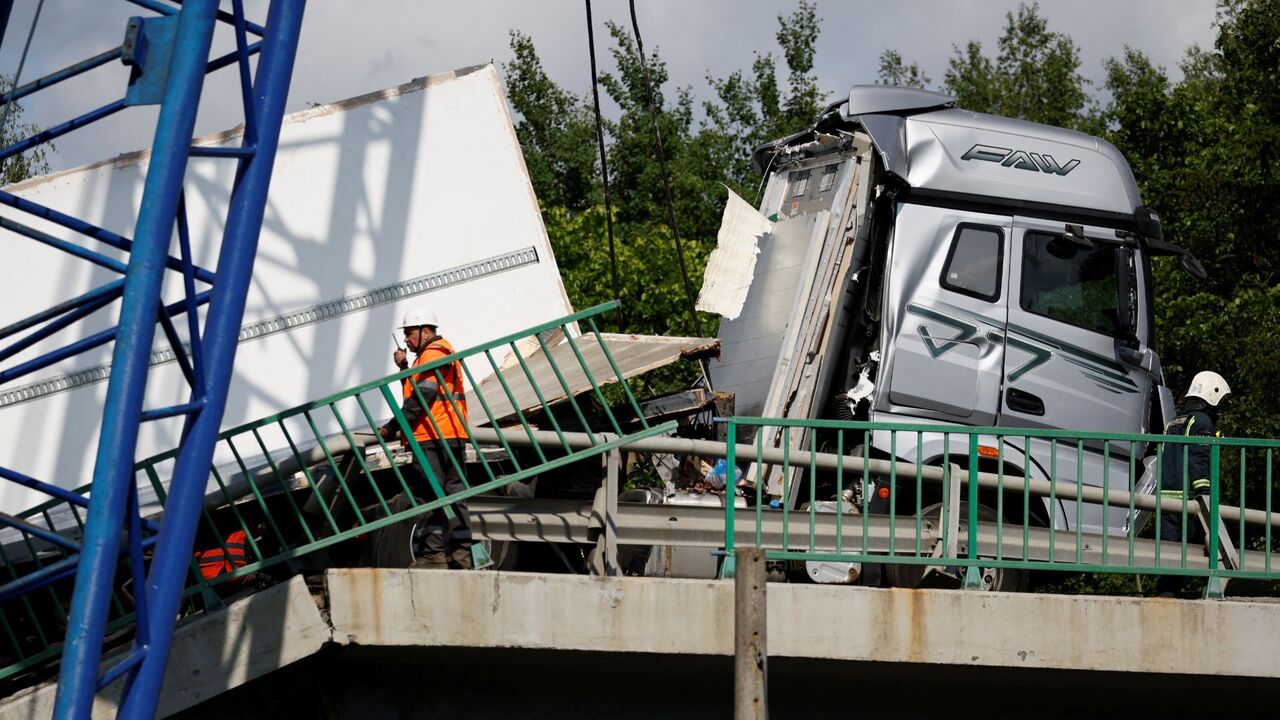
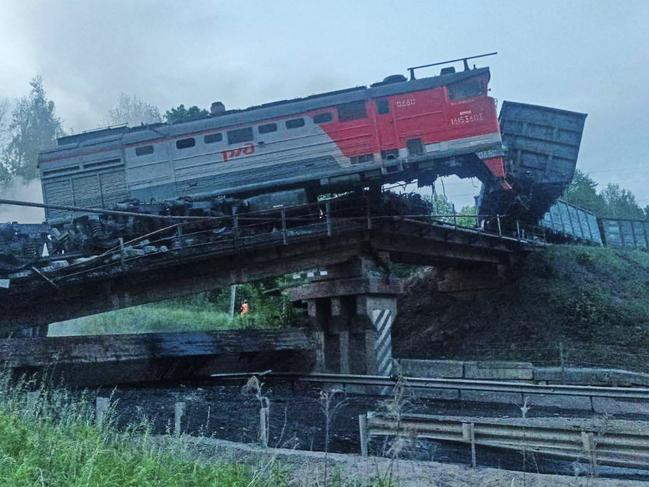
The blast in the Bryansk region derailed a passenger train heading to Moscow, leaving seven people dead.
The separate rail bridge in the neighbouring Kursk region derailed a freight train, injuring the driver, officials said.
Videos posted on social media from the Bryansk region showed rescuers clambering over the mangled chassis of a train belonging to national operator Russian Railways, while screams could be heard in another video.
“There are seven dead as a result of the collapse of a bridge onto railway tracks,” Alexander Bogomaz, the Bryansk region’s governor, wrote on Telegram.
At least 66 others were injured, including three children, he said.
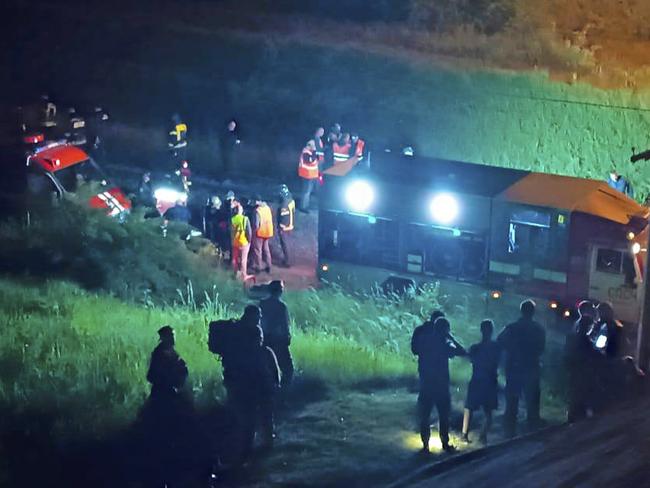
In one video posted from the Bryansk region social media account, someone could be heard screaming as eyewitnesses rushed to find help.
“How did the bridge collapse? There are children there!” a woman can be heard shouting in the video.
Russia has been hit by dozens of sabotage attacks since Moscow launched its offensive against Ukraine in 2022, many targeting its vast railroad network.
Kyiv says Russia uses railroads to transport troops and weaponry to its forces fighting in Ukraine.
The incidents came on the eve of a possible meeting between Russian and Ukrainian officials in Istanbul, amid a US-led diplomatic push to end the three-year-long conflict.
– with AFP
More Coverage
Originally published as Russia agrees to prisoner of war swap in peace talks after Ukraine’s surprise drone attack


